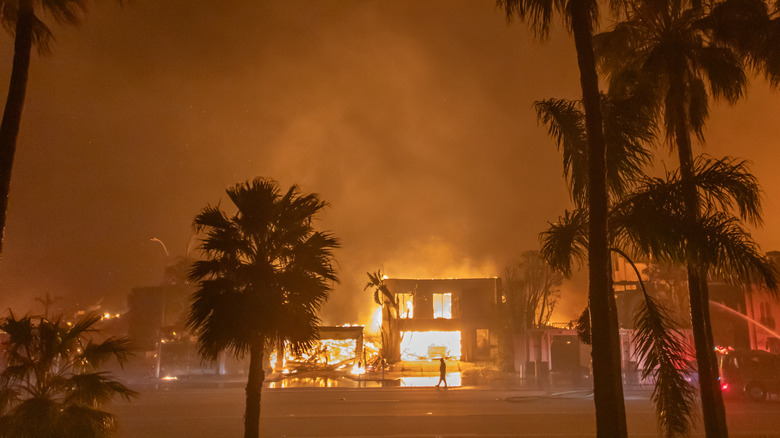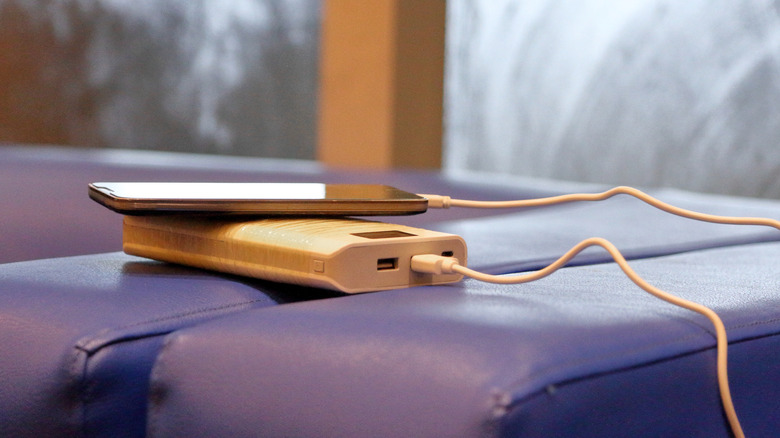What Does PSPS Mean & How Should You Prepare For One In Your Area?
If you're in an area with a severe weather condition, it can be really scary when the power shuts completely off. Sometimes, this is done on purpose to protect nearby communities when there's an elevated risk of a fire, low humidity, or high winds. When this happens, it's called a PSPS, or a Public Safety Power Shutoff. According to California's Public Utilities Commission, the state started implementing PSPS due to the increase in intense wildfires over the past decade. While electric utility infrastructures are responsible for less than 10% of the state's wildfires, the Public Utilities Commission noted that these types are often the most destructive.
While shutting down power can reduce the risk of an electrical related wildfire, PSPS can leave communities in a panic. To help residents prepare for a PSPS, an alert is often sent out as soon as the Public Utilities Commission knows that one will be implemented. Due to drastic weather changes, this could end up being the same day as the shut-off takes place, so it's best to start preparing early for a PSPS if there are active wildfires near your community.
How to prepare for a PSPS
Not having any power can cause a lot of inconveniences for communities that are already in a panic. It's best to be prepared for a PSPS if you're in an area impacted by severe weather, so you're ready for a sudden power shut off. First, it's beneficial to have a weather app on your phone to better track what's going on around you — this can better prepare you for a possible PSPS. Have a safety plan in place for yourself and members of your household. This could mean having a backup location in mind. You may also want to invest in a generator if you're not planning to evacuate.
Another important thing to remember before a PSPS is to have backup charging methods for electronics, especially phones (here are some top-rated power banks). It's important to still have access to your contacts, GPS, and other important apps. Write down important phone numbers and directions in a notebook as well, in case your phone ends up dying during a power outage.
Start stocking up on emergency supplies ahead of time — first aid items, a flashlight, batteries, food, and water are big ones. You should also devise a backup plan for any medications that require refrigeration or medical equipment that needs to be plugged in or charged to work. This could include breathing machines, power wheelchairs, and dialysis.

